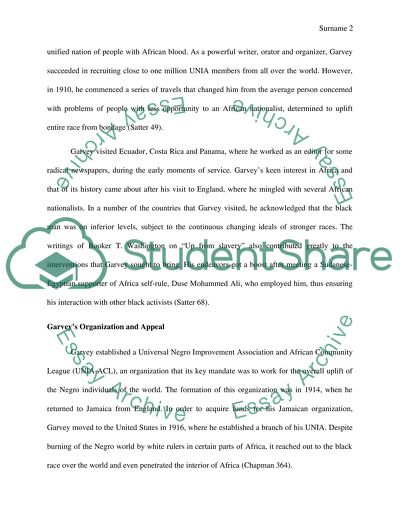Cite this document
(“Marcus Mosiah Garveys Movement Essay Example | Topics and Well Written Essays - 1250 words”, n.d.)
Marcus Mosiah Garveys Movement Essay Example | Topics and Well Written Essays - 1250 words. Retrieved from https://studentshare.org/history/1665245-marcus-mosiah-garveys-movement
Marcus Mosiah Garveys Movement Essay Example | Topics and Well Written Essays - 1250 words. Retrieved from https://studentshare.org/history/1665245-marcus-mosiah-garveys-movement
(Marcus Mosiah Garveys Movement Essay Example | Topics and Well Written Essays - 1250 Words)
Marcus Mosiah Garveys Movement Essay Example | Topics and Well Written Essays - 1250 Words. https://studentshare.org/history/1665245-marcus-mosiah-garveys-movement.
Marcus Mosiah Garveys Movement Essay Example | Topics and Well Written Essays - 1250 Words. https://studentshare.org/history/1665245-marcus-mosiah-garveys-movement.
“Marcus Mosiah Garveys Movement Essay Example | Topics and Well Written Essays - 1250 Words”, n.d. https://studentshare.org/history/1665245-marcus-mosiah-garveys-movement.


